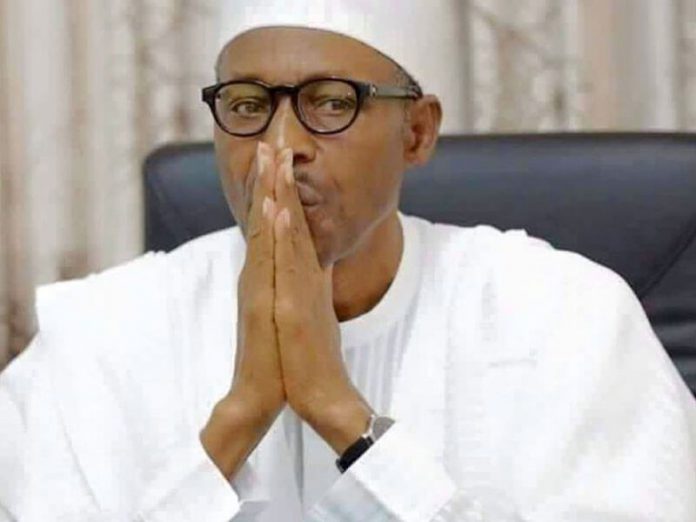By Emeka Alex Duru
While campaigning for Anambra State governorship election in 2003, Peter Obi, had posed a rhetorical question: “Is Anambra cursed or are we the cause of our problem”? The question was prompted by the slow pace of development in a state that was endowed with human and material resources.
Obi, the Vice Presidential candidate of the Peoples Democratic Party (PDP) in the February 28, 2019 general elections, had pointedly located the problem of the state on poor leadership since its creation.
Earlier in 1985, celebrated novelist, Chinua Achebe, had proffered the same answer on the problem assailing Nigeria and by extension, slowing its development, in his concise and insightful book, The Trouble With Nigeria.
Achebe had argued,
“The trouble with Nigeria is simply and squarely a failure of leadership. There is nothing wrong with the Nigerian land or climate or water or air or anything else. The Nigerian problem is the unwillingness or inability of its leaders to rise to the responsibility, to the challenge of personal example, which is the hallmark of true leadership”.
59 years after Nigeria’s political independence from Britain and 35 years after Achebe’s profound remarks, the situation remains same, or even worse, as many insist, in some quarters.
In the march to statehood, the forebears of the emerging Nigeria had envisioned a giant enterprise that would champion and protect the cause of its citizens and indeed, the black man in the comity of nations. Guided by these alluring visions, they had, led thousands of youths and even the elderly who provided the raw energy and verve for the nationalistic struggle, to the Lagos Race Course (Tafawa Balewa Square) hours before mid-night of September 30, 1960 to herald the birth of a new nation. By 12.00 AM, the lights in the arena went off. When they were turned on, a new era had dawned. Nigeria had become independent. The Green-White-Green national flag had taken the position of the British Union Jack. Those that witnessed the colourful occasion still find it difficult to explain their euphoria at the event.
The emerging administration took the form of British Westminster parliamentary pattern. In it, Tafawa Balewa of the Northern Peoples Congress (NPC), became the Prime Minister while Nnamdi Azikiwe of the National Council of Nigeria and the Cameroons (NCNC), complemented him as the ceremonial President. Obafemi Awolowo’s Action Group (AG), played the role of opposition.
Even with the administration at the centre, the Regions remained strong points of political and economic activities. The arrangement paid off initially as the composing regions competed among themselves for meaningful development. The North concentrated largely on Agriculture as the main stay of its economy.
Coal, Palm Oil and allied products played similar roles in the East while Cocoa provided the West with the needed revenue. In the process, each Region grew and developed at its own pace and according to its priorities and peculiarities.
A vision mismanaged
However, the relative fast-paced development in the regions carried with it creeping cultures of indiscipline and corruption that gradually but steadily pervaded the major fabrics of the nation. Informed analysts identify the relative lax in the centre at the time as creating room for corrupt officials in the regions to run riot with the public till. By 1966, the rot in the system had become quite overt. Consequently, cashing in on the rising discontentment in the land, some officers in the military, largely driven by idealism and fleeting conviction in their ability to halt the drift, made incursion into civil politics.
Led by Majors Emmanuel Ifeajuna and Chukwuma Nzeogwu, they struck on January 15, 1966, insisting that their aim was “to bring an end to disorder, corruption and despotism”.
Their intervention resulted in loss of many lives including the Prime Minister and other key officials of the government. Somehow, the putsch was perceived as having ethnic colouration, given that most of the actors bore Igbo names. To add it up, following the death of Balewa and the resultant confusion, General Johnson Umunnakwe Aguiyi-Ironsi, an Igbo, who incidentally was the most senior ranking Nigerian Army officer, was invited to take over the reins of power.
This added weight to the insinuations that the January coup was a careful design by the Igbo to take over the leadership of the country.
Within the six months of Ironsi administration, his policies were largely misunderstood or misinterpreted out rightly. Consequently, by July of that year, a counter coup, planned and executed by soldiers of Northern extraction was launched.
A nation in disarray
The ensuing controversies and mutual distrust within the military and political class saw Nigeria engaging in Civil War that lasted between 1967 and 1970. At the end of the exercise, over a million souls were estimated to have been lost.
At the onset of hostilities, the federal authorities in obvious attempt to break the Eastern region, apparently to weaken the resolve of Biafra, altered the existing regional arrangement and in its place, hastily put up a 12-State structure.
Many point at the abortion of the First Republic and alteration of the original federal structure of the country as accounting largely to the pervasive rot in the system. For example, between 1966 and 1999 when the current civilian dispensation was instituted, eight military administrations had ruled the country with iron fists. The only interlude was the President Shehu Shagari-led Second Republic of 1979 to 1983. Some of the military administrations at various times engaged in state creation exercises that eventually gave the nation its present 36-state structure.
In search of a just federation
Even with a civilian government in place, the quest for a just and equitable nation that will reflect the dreams of the fore fathers remains a dominant topic among enlightened commentators. Nigerians are divided on the extent this has been achieved by successive administrations in the land. Founder of Igbo Youth Movement (IYM), Elliot Ugochukwu-Uko, insists that not much has been achieved in the making of the federation. In his view on Nigeria at 59, he argues that there is nothing to celebrate, stressing that a sad tale of missed opportunities, brazen mismanagement, bad leadership and mutually destructive hate, defines the painful story of Nigeria at 59.
According to him, “Ethnic divisions, military intervention, poor governance and emergence of a predatory political class that thrives on the sheer exploitation of religious and regional differences to cover their mindless mismanagement of our collective future, has regrettably been our lot as a people”.
Catholic Bishop of Sokoto Diocese, Matthew Hassan Kukah, shares similar opinion on Nigeria, not moving at a pace expected of her. Writing on the topic, ‘Nigeria and its Fourth Republic: Failing to Learn or Learning to Fail?, he paints a picture of a Nigeria, making more progress in reverse, particularly in catching up with democratic norms.
“Today, when we look back, it would seem that at the beginning, we did even better, showed greater discipline and understanding of the rules of the game, showed greater appreciation of the purpose of government and the objectives of a Democracy”, he observes.
Elsewhere, the development profile of the country, has largely been unexciting. Currently ranked the Poverty Capital of the World, Nigeria’s economy has been fast on the decline. With ravaging youth unemployment , collapsed infrastructure, galloping inflation and high cost of living, the standard of living in the country, has remained poor. Added to weak judicial and electoral institutions, creeping security challenges occasioned by boko haram insurgency, herdsmen menace, kidnapping and other criminal activities, Nigeria has been seen by some as a bungled dream. Consequently, the country which had started off as the rallying point for other African states, has been reduced to an object of ridicule among its peers. The other day, more than 500 Nigerians were brought back from South Africa, where a gale of xenophobic attacks had been unleashed on them and their businesses, lately.
Notwithstanding, the vice president, Prof Yemi Osinbajo, hopes that a new Nigeria is about to be born. At a forum in Abuja, Osinbajo, had observed, “God has promised us a new Nigeria, a peaceful Nigeria, a prosperous Nigeria where justice, equity and fairness shall prevail, a united Nigeria, where the different tribes and tongues, are not the reason for separation but joyful textures of our togetherness”. Other senior officials of the government, express similar enthusiasm. But the masses are yet to be convinced.













